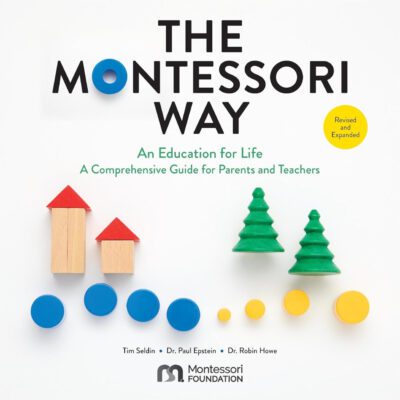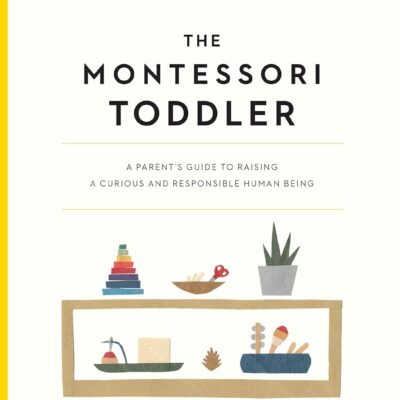
1907-2025 Welcome to the 119th Montessori School Year!
NOTE: I would like to acknowledge my colleague, Jonathan Wolf, with whom I have taught courses and presented on this topic. His wisdom inspired much of what we have to share.
Every school leader has faced that moment: the knock on the office door, the email asking for a meeting, or the parent who catches your arm at pick-up and says, “Do you have a minute?” Often, what follows isn’t a quick chat at all, but a difficult conversation—one that carries the weight of a child’s future, a family’s fears, or the delicate balance of trust between home and school.
I remember a father who once sat across from me, arms crossed tightly, eyes narrowed, as I tried to explain that his daughter was struggling socially and academically. His words came sharp and defensive: “Are you saying my child isn’t smart enough?” It would have been easy to respond in kind, but in that moment, I had to remind myself: this isn’t about winning an argument—it’s about helping a child. What that father needed most wasn’t more data or sharper reasoning. He needed to know that we were on his side.
That’s what these conversations are really about. They aren’t just about problems; they’re about leadership.
Why These Conversations Matter
Every Montessori leader eventually has to step into these spaces:
- Conversations about neurodiversity or developmental differences
- Talking through disciplinary issues
- Helping parents process their child’s academic or social struggles
- Addressing resistance or outright denial
Handled poorly, these conversations can erode trust. But approached with clarity and compassion, they can strengthen partnerships and open new doors for children.
Quick Tips for School Leaders
- Don’t let the first call home be about bad news—share positives regularly.
- Choose the right time and place; never have these talks on the run.
- Enter with curiosity, not conclusions.
- End with clear agreements and follow-up dates.
Preparing Your Heart and Mind
The real preparation for these conversations begins inside of us. Before meeting with a parent, pause and ask:
- What emotions does this situation stir up for me?
- Am I approaching with openness or judgment?
- What outcome do I truly want for this child and family?
Parents pick up on our energy. If we carry frustration, they feel it. But when we arrive with empathy and steadiness, we make space for real dialogue.
The Importance of Trust Before Trouble
One teacher I worked with made it her habit to email parents every Friday afternoon with one small snapshot: a funny story, a kind act, or a proud achievement. These weren’t long notes, but they added up. Months later, when a sensitive issue arose, those parents already trusted her voice.
Trust is built in those small deposits. When it’s there, the hard conversations can begin on solid ground.
Language That Builds Bridges
- Instead of: “Your child is disruptive.”
- Try: “We’ve noticed some behaviors that seem to be getting in the way of her learning.”
- Instead of: “You need to fix this at home.”
- Try: “What have you noticed at home? Let’s look at this together.”
A Framework That Works
- Start with affirmation and shared purpose.
Open by affirming the child: “We all care deeply about Sam, and we want him to feel successful and confident here.” - Ask, listen, ask again.
Begin with open-ended questions, listen deeply, then ask clarifying follow-ups. This shows respect and genuine curiosity. - Explore, don’t diagnose.
Frame the challenge as a shared puzzle, not a verdict. Admit what you don’t yet know, and invite parents’ insights. - Try “Feel–Felt–Found.”
When parents are defensive: “I understand how you feel. Other parents have felt the same way. What we’ve found is…” - Know when to pause.
If emotions boil over, suggest reconvening later. Protecting the relationship matters more than pushing through. - End with clarity.
Summarize agreements, document responsibilities, set follow-up dates, and provide resources.
Sidebar: Reflection Prompts for Leaders
- What conversations make you most uncomfortable? Why?
- How do your own experiences as a parent or teacher shape your reactions?
- When was a time you left a conversation feeling proud of how you handled it? What made the difference?
A Montessori Lens on Leadership
Maria Montessori once wrote, “Purify your heart and render it burning with charity.” For me, that is the essence of school leadership.
These conversations aren’t interruptions to the “real work.” They are the real work. When we model honesty joined with compassion, we show parents and children alike that dignity and respect matter as much as academics.
Walking Away Stronger
That father I mentioned at the beginning? Months later, after his daughter had made great progress, he came back into my office. This time, his arms weren’t crossed. He leaned forward and said quietly, “Thank you for not giving up on us.”
That’s the lasting power of these conversations. When we lead them with honesty, courage, and compassion, we not only resolve immediate issues—we strengthen the bonds that hold our communities together.
So, the next time your stomach tightens before a parent meeting, remember this: you are not just managing conflict. You are leading with love. And that, in the end, is the heart of Montessori leadership.








